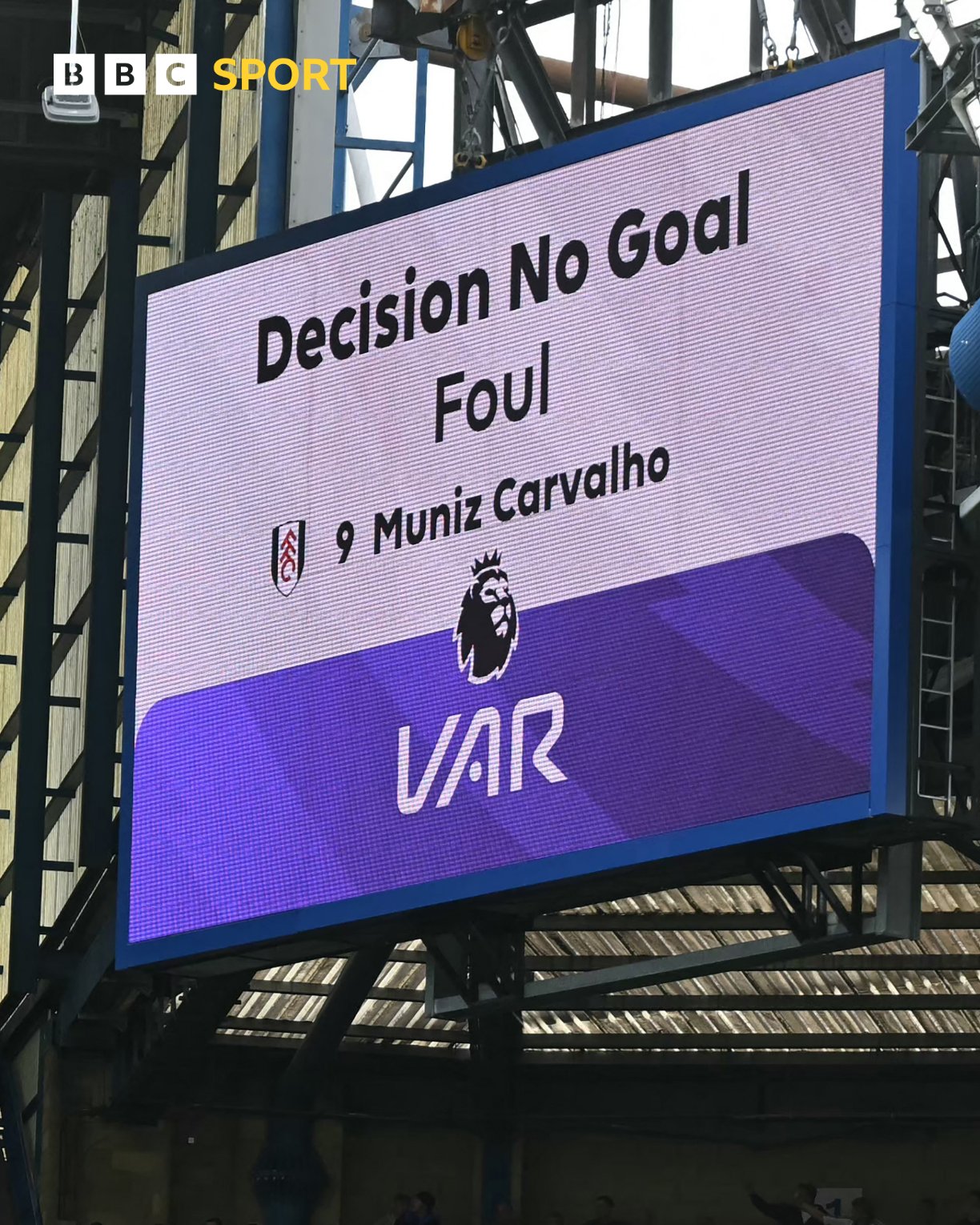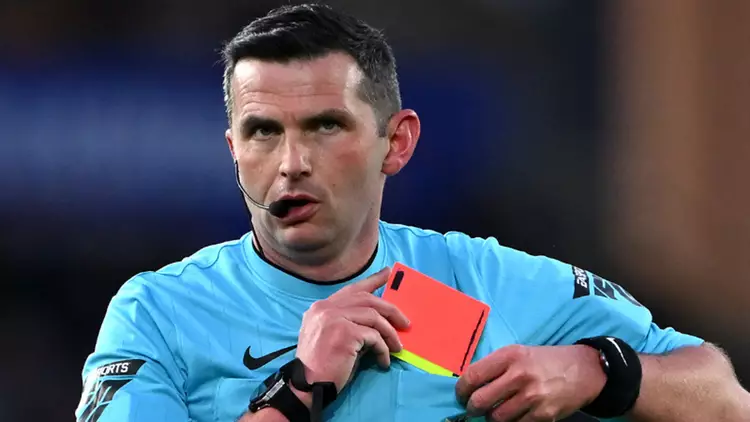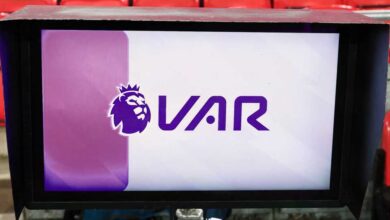VAR official Michael Salisbury has been dropped from the Liverpool and Arsenal game after the PGMOL said it was a mistake for the video assistant referee to disallow Fulham’s opening goal at Chelsea on Saturday.

The Premier League has once again found itself in the middle of a storm, and this time the controversy has hit the Video Assistant Referee system that was introduced to bring fairness and clarity to the game. VAR official Michael Salisbury has been dropped from officiating duties for the highly anticipated clash between Liverpool and Arsenal after the PGMOL, the body responsible for referees in England, admitted that it was indeed a mistake to disallow Fulham’s opening goal at Stamford Bridge on Saturday against Chelsea. The decision has reignited the endless debate about VAR’s role in football, the pressure referees face, and how such errors continue to shake trust in the system that was meant to solve controversies, not create new ones.
The incident at Stamford Bridge came early in the game when Fulham thought they had struck first against Chelsea. The ball ended up in the back of the net after a quick attacking move, Fulham players celebrated wildly, and their fans believed they had just silenced the home crowd. But then came the dreaded wait, the pause in play that has now become all too familiar in modern football. VAR intervened, telling the on-pitch referee to disallow the goal for what was deemed an infringement in the buildup. Fulham’s celebrations were cut short, and the atmosphere inside the stadium shifted instantly. Chelsea went on to take control, and while Fulham tried to fight back, the momentum had already been broken. After the game, Fulham’s manager expressed his anger, insisting that the goal should have stood and that decisions like these change games completely.
In the days that followed, analysis poured in from pundits, journalists, former referees, and even fans on social media. Replays of the incident were shown repeatedly, and it became harder to justify the call that robbed Fulham of a crucial opener against one of the league’s biggest clubs. PGMOL chief Howard Webb eventually admitted that the decision was wrong. In his statement, Webb confirmed that Michael Salisbury, who was on VAR duty for that match, should not have advised the referee to disallow the goal. By acknowledging the mistake publicly, Webb sought to restore some credibility, but the consequences for Salisbury were immediate: he was dropped from the referee list for Liverpool’s clash with Arsenal, one of the biggest fixtures of the Premier League weekend.
This decision is not just about one referee missing out on a high-profile game, it speaks volumes about the state of officiating in English football. The VAR system was meant to remove “clear and obvious errors,” but instead, it has often been accused of creating confusion, slowing down games, and leaving fans frustrated. Mistakes like the one at Stamford Bridge only fuel the argument that VAR has not solved football’s old refereeing problems—it has only added new layers of controversy.
For Liverpool and Arsenal, two clubs who have both been on the receiving end of questionable VAR calls in recent seasons, the removal of Salisbury is significant. Their upcoming clash was already being hyped as a potential title-defining battle. Arsenal are chasing their first league title in two decades, while Liverpool under Arne Slot are determined to prove they can continue competing at the highest level even after the Klopp era. Every decision in such a match could swing momentum, shape the title race, and leave lasting consequences. By dropping Salisbury, the PGMOL are making a statement that accountability is necessary. But for supporters of Fulham, the apology and disciplinary action might feel like too little, too late.
The reality is that Fulham’s points cannot be returned. A goal that should have stood was disallowed, and that may have cost them dearly in a league where every point matters. Clubs fighting for survival or aiming for European qualification know that even one mistake in a single game can affect their entire season. This is why controversies around VAR become such heated topics—because they are not just about technology or referees, they are about fairness, about the emotional rollercoaster of football, and about the millions of fans who invest their hearts in every match.
Former players have weighed in, with some calling for drastic changes to how VAR is used. A few have suggested that referees should have more authority and confidence to make decisions on the pitch without leaning too heavily on VAR. Others argue that VAR needs stricter guidelines, more transparency, and perhaps even live explanations to the crowd and TV audiences, mch like what is seen in rugby or American football. The inconsistency in VAR usage has been the biggest criticism—sometimes the system intervenes for minor incidents, other times it seems blind to clear fouls or handballs. Saturday’s Fulham incident was another glaring example of this inconsistency
As for Michael Salisbury, this is not the first time he has found himself in the headlines for controversial calls. His track record has already been questioned by pundits in the past, and being dropped from one of the most-watched fixtures of the season is a huge blow to his reputation. While referees and VAR officials are human and bound to make mistakes, repeated errors at the highest level of the game cannot simply be brushed aside. The PGMOL knows this, which is why Salisbury’s removal is also a warning to other officials that accountability is real and performance matters.
Liverpool fans, in particular, have long memories when it comes to refereeing decisions. They still talk about last season’s VAR debacle against Tottenham, when a legitimate Luis Díaz goal was wrongly disallowed for offside due to what the PGMOL later described as “human error.” That mistake led to apologies, meetings, and renewed promises of improvement, yet here we are again, less than a year later, with another apology and another referee being sidelined. Arsenal fans, too, have bitter memories of controversial decisions, such as the Brentford equalizer last season that should have been ruled out for offside but was allowed to stand because the VAR lines were not drawn. Both sets of supporters know all too well how much impact these errors can have.
The question now is how long will the patience of players, managers, and fans last before calls to scrap VAR altogether grow louder. There was once a belief that VAR was the future, a technological solution to an age-old problem. But week after week, high-profile controversies are making people wonder if football was better off when referees made decisions on the spot, without lines drawn on screens and endless pauses for reviews. At least then, the game flowed, and while mistakes were made, they were accepted as part of the sport. Now, mistakes are still made, but with the added sting of technology failing to deliver on its promise.
The upcoming Liverpool vs Arsenal match will go ahead without Salisbury, but the shadow of his mistake at Stamford Bridge will still linger. Fans of both clubs will be scrutinizing every VAR call, every offside line, every penalty appeal, and every possible handball with suspicion. Referees know they will be under enormous pressure, because every decision in a game of this magnitude will be magnified a hundred times. PGMOL will be hoping that the match passes without controversy, but football being football, drama is almost guaranteed.
For Fulham, the sense of injustice will not fade quickly. Players who worked hard to score that disallowed goal will feel robbed, fans who traveled to watch their team compete against Chelsea will feel cheated, and the manager will feel let down by a system that is supposed to protect fairness. Their season continues, but the lost points could weigh heavily later down the line.
In the grand scheme of things, this latest episode is a reminder that VAR, for all its technology and promise, is only as good as the officials operating it. Human interpretation, judgment, and pressure will always play a role, no matter how many cameras are installed or how many replays are shown. Football remains a game of fine margins, where the difference between glory and heartbreak can rest on a single whistle—or in this case, a single decision from a VAR official.
The dropping of Michael Salisbury from the Liverpool vs Arsenal game is a small step toward accountability, but it does not fix the deeper issues that continue to plague officiating in English football. Until consistency, clarity, and trust are restored, VAR will remain one of the most divisive topics in the sport. Fans will keep debating, managers will keep demanding answers, and referees will keep walking a tightrope under the scrutiny of millions.
What happened at Stamford Bridge was not just a mistake, it was another chapter in the story of how football is struggling to balance tradition with technology. Whether VAR survives in its current form, evolves into something more transparent, or eventually gets scrapped, one thing is certain: the beautiful game cannot afford to lose its credibility. And as long as decisions like Fulham’s disallowed goal keep happening, the conversation will never go away.
This is why the news of Salisbury being dropped has made such waves ahead of Liverpool vs Arsenal. It is not simply about one referee missing a game—it is about the credibility of the sport, the fairness of competition, and the emotions of millions who live and breathe football. As the Premier League marches on, one can only hope that lessons are learned, because mistakes like this leave scars that no apology can heal.















